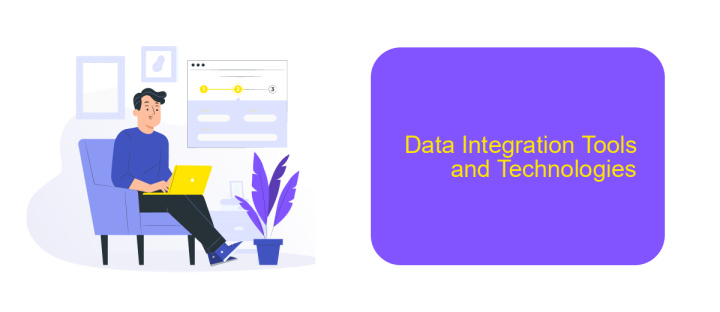Best Data Integration
In today's data-driven world, effective data integration is crucial for businesses aiming to harness the full potential of their information assets. It involves combining data from various sources to provide a unified view, enabling better decision-making and improved operational efficiency. This article explores the best data integration tools and strategies to help organizations streamline their data processes and achieve seamless connectivity.
Introduction
Data integration is a critical aspect of modern business operations, enabling organizations to consolidate information from various sources to gain a comprehensive view of their data. Effective data integration ensures that data is accurate, consistent, and accessible, which is essential for informed decision-making and strategic planning.
- Combining data from multiple sources
- Ensuring data accuracy and consistency
- Facilitating real-time data access
- Improving data-driven decision making
With the advent of advanced integration tools like ApiX-Drive, businesses can automate and streamline the process of data integration. ApiX-Drive offers a user-friendly platform that connects various applications and services, allowing seamless data transfer and synchronization. By leveraging such tools, organizations can enhance their operational efficiency, reduce manual errors, and ensure that their data is always up-to-date and reliable.
Data Integration Challenges

Data integration presents several challenges that organizations must navigate to ensure seamless and efficient operations. One primary challenge is dealing with data from disparate sources, which often come in various formats and structures. This heterogeneity can complicate the process of consolidating data into a unified system, requiring robust transformation and normalization techniques. Additionally, maintaining data quality and consistency across integrated systems can be difficult, as errors or inconsistencies in one source can propagate and affect the entire dataset.
Another significant challenge is ensuring real-time data integration, which is critical for timely decision-making. Achieving this requires sophisticated tools and technologies capable of handling continuous data flows without latency. Security and compliance also pose substantial hurdles, as integrating data from multiple sources often involves sensitive information that must be protected against breaches and comply with regulatory standards. Services like ApiX-Drive can assist in overcoming these challenges by providing automated, real-time data integration solutions that simplify the process and enhance data security, ensuring that organizations can focus on leveraging their integrated data effectively.
Best Practices for Data Integration

Implementing best practices in data integration is crucial for ensuring seamless data flow and maintaining data integrity. To achieve this, organizations should focus on several key strategies.
- Define clear objectives: Establish specific goals for your data integration project to ensure alignment with business needs.
- Choose the right tools: Utilize reliable integration platforms like ApiX-Drive, which offer user-friendly interfaces and robust features for automating data workflows.
- Ensure data quality: Implement validation and cleansing processes to maintain high data quality throughout the integration process.
- Maintain data security: Protect sensitive information by employing strong encryption methods and access controls.
- Monitor and optimize: Continuously monitor data integration processes and optimize for performance improvements.
By adhering to these best practices, organizations can streamline their data integration efforts, minimize errors, and enhance overall data management. Tools like ApiX-Drive can significantly simplify the integration process, providing a reliable solution for connecting various data sources and automating workflows.
Data Integration Tools and Technologies

Data integration tools and technologies are essential for organizations looking to streamline their operations and ensure seamless data flow between different systems. These tools help in combining data from various sources, transforming it into a unified format, and making it accessible for analysis and decision-making.
Modern data integration solutions offer a range of functionalities, from simple data migration to complex data orchestration. They support real-time data processing, ensuring that the information is always up-to-date and accurate. Many of these tools are cloud-based, providing scalability and flexibility to meet the growing data needs of businesses.
- ETL (Extract, Transform, Load) Tools
- Data Warehousing Solutions
- API Integration Platforms
- Data Virtualization Tools
- Real-time Data Integration Tools
One notable service is ApiX-Drive, an API integration platform that simplifies the process of connecting various applications and automating workflows. It allows businesses to set up integrations without any coding, making it accessible even for non-technical users. By using such tools, organizations can enhance their data integration capabilities, leading to more efficient operations and better decision-making.


Conclusion
In conclusion, the importance of data integration in today's digital landscape cannot be overstated. Effective data integration solutions streamline operations, improve decision-making, and enhance the overall efficiency of an organization. The right tools and strategies enable seamless data flow between diverse systems, ensuring that information is readily accessible and actionable. Organizations must carefully evaluate their integration needs and choose solutions that align with their specific requirements and goals.
One such solution is ApiX-Drive, which offers a robust platform for automating and managing data integrations. By leveraging ApiX-Drive, businesses can effortlessly connect various applications and services, reducing the complexity and time required for manual data handling. This not only boosts productivity but also minimizes the risk of errors, ensuring data integrity. As the demand for real-time data and interconnectivity continues to grow, adopting efficient integration services like ApiX-Drive will be crucial for maintaining a competitive edge in the market.
FAQ
What is data integration?
Why is data integration important for businesses?
What are the common challenges in data integration?
How can automation improve the data integration process?
What should you consider when choosing a data integration tool?
Apix-Drive is a simple and efficient system connector that will help you automate routine tasks and optimize business processes. You can save time and money, direct these resources to more important purposes. Test ApiX-Drive and make sure that this tool will relieve your employees and after 5 minutes of settings your business will start working faster.

